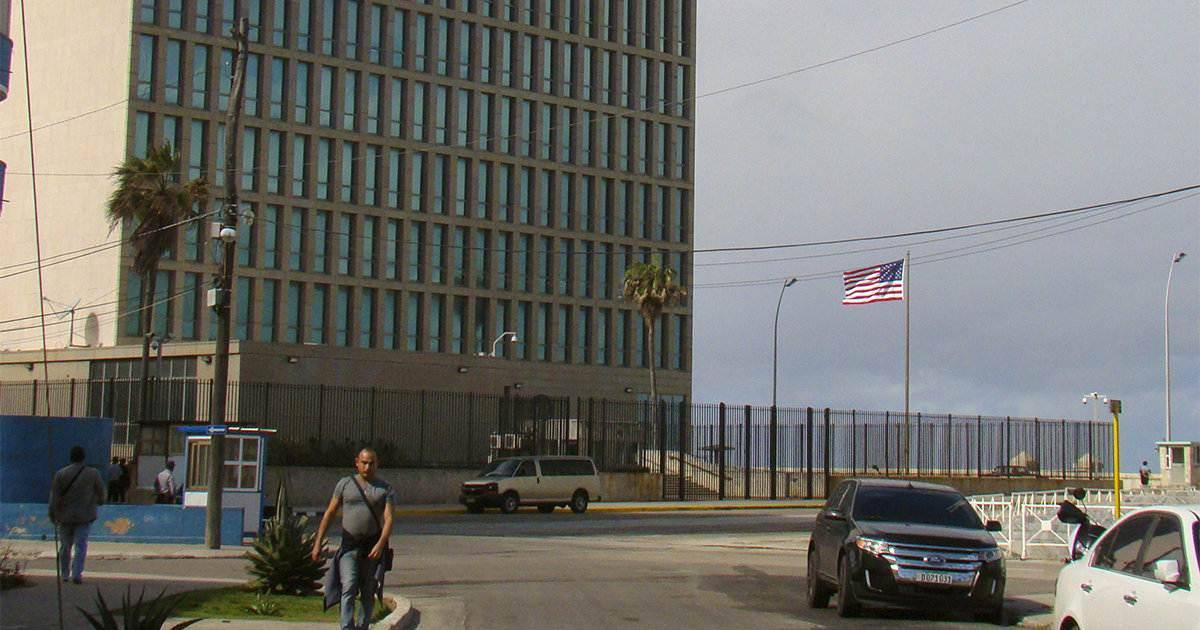
The United States government on Tuesday named Cuba among the countries that "do not fully cooperate" in its fight against terrorism, while Havana described the announcement as "mendacious accusations."
The Secretary of State, Antony Blinken, public a notice in the United States Federal Register where he once again mentioned Cuba among the five countries that do not support Washington's anti-terrorist efforts.
"I hereby determine and certify to Congress that the following countries are not fully cooperating with counterterrorism efforts from the United States: Cuba, Democratic People's Republic of Korea (DPRK or North Korea), Iran, Syria and Venezuela"wrote the official.
The State Department is required by law to provide this list each year to Congress, and the message for 2023 is almost identical to that of the previous two years.
In statements to CyberCuba A State Department official said Blinken determined and certified Cuba, the DPRK, Iran, Syria and Venezuela as countries that are "not fully cooperating" with US counterterrorism efforts. The certification corresponds to the calendar year 2022, the official explained.
"These are the same countries whose lack of cooperation was certified last year, under the Arms Export Control Act determinations and certifications that are made annually after considering a country's overall level of cooperation in our efforts to fight against terrorism," the official added.
Under that legislation, countries that Congress certifies as not cooperating with U.S. counterterrorism efforts are prohibited from selling or licensing the export of defense articles and services. The next regulation for export licenses for weapons and defense equipment comes into force on October 1, and the ban on the indicated countries remains in force until that date.
The State Department carries out this classification every March as a preliminary step to the designation of "country sponsors of terrorism." But the decision to keep Cuba in this category dispels the possibility that Washington is considering removing it from the "black list" that implies the greatest economic and financial restrictions.
Havana, for its part, reacted to the accusation through a message from the Foreign Ministry on Twitter.
"The mendacious accusations against Cuba regarding terrorism persist from Washington, an abominable crime that the United States has practiced without scruples and that it opportunistically uses as a tool of political coercion," the chancellor posted. Bruno Rodriguez.
Likewise, the General Director of Latin America and the Caribbean of the Ministry of Foreign Affairs of Cuba, Eugenio Martínez, wrote that the inclusion of the island on the list is a paradox, since Cuba supports with a meeting in Havana this Tuesday a peace agreement between the government of Colombia and the almost 60-year-old guerrilla in that country.
The Republican government Donald Trump included Cuba as a state sponsor of terrorism before leaving office in January 2021, due to the island's poor participation in cooperation initiatives, and took some restrictive measures such as limiting the sending of remittances and travel of US citizens to the Caribbean country.
However, in 2022 Joe Biden partially repealed some Trump restrictions.
On March 23, the administration of Biden said he did not plan to remove Cuba from the list of countries sponsoring terrorism, because it considered that it did not comply with the requirements demanded by the United States.
"We do not plan to remove [Cuba] from the list," Blinken said during a hearing of the House of Representatives Foreign Relations Committee on that date.
The inclusion of Cuba in the "blacklist" of sponsors of terrorism It continues to be the main obstacle to negotiations between Havana and Washington, which insists on the protection of the fundamental rights of Cuban citizens and the release of political prisoners on the island.
"The government of Cuba must take consistent steps and release the prisoners of 11-J [protesters of July 11, 2021] to be able to direct better bilateral relations, which are not only in the interest of the government but of the Cuban nation and its community abroad," said the former congressman Joe Garcia, figure of the Democratic Party in Florida.
What do you think?
SEE COMMENTS (7)Filed in: